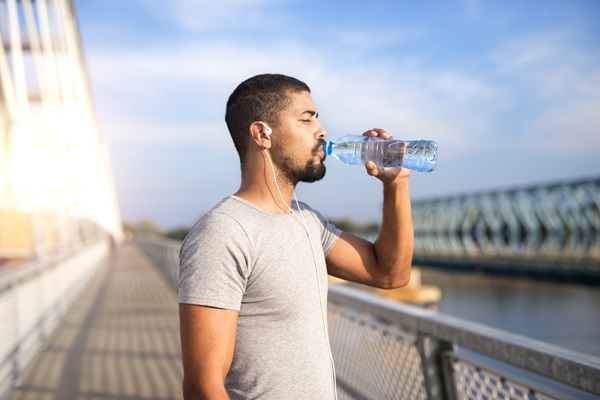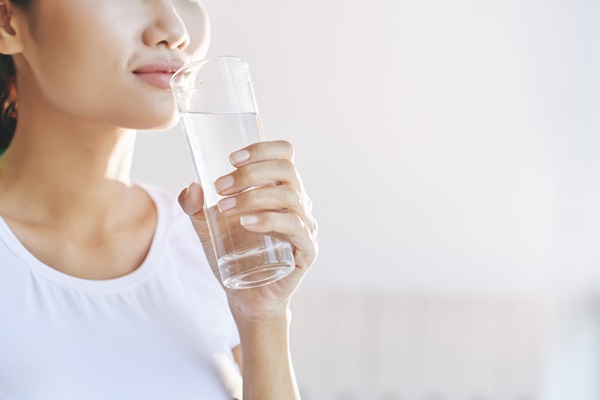In today’s fast-paced world, maintaining proper hydration habits is often overlooked. This comprehensive guide explores the crucial role of hydration in optimizing both health and performance. Learn the science behind staying well-hydrated and practical tips to incorporate this knowledge into your daily routine.

I. Introduction
a. The Essence of Hydration
Proper hydration habits are not merely about quenching your thirst – it’s a fundamental pillar of health and vitality. Every cell, tissue, and organ in your body relies on water to function effectively. Hydration isn’t just a necessity; it’s the cornerstone of your well-being.
II. The Science Behind Hydration
a. Understanding Dehydration
Dehydration, in its various forms, represents a significant threat to your health. It’s not just the parched sensation in your throat; it’s a complex physiological challenge that can manifest mildly or severely. Recognizing these stages is essential.
Dehydration typically occurs in three degrees: mild, moderate, and severe. Mild dehydration may be marked by dry skin, a dry mouth, and slightly darker urine. As it progresses to moderate, symptoms like dizziness, rapid heartbeat, and increased body temperature become noticeable. Severe dehydration is life-threatening and demands immediate medical attention, with symptoms such as confusion, a lack of sweat, and even unconsciousness.
b. The Role of Water in the Body
Water isn’t just a lifeless liquid; it’s a vital nutrient, just like the vitamins and minerals you get from your food. It has a hand in almost every aspect of your body’s functioning, serving as a lubricant, a solvent for essential chemical reactions, a transport medium for nutrients, and a temperature regulator.
Your body is composed of approximately 60% water. The brain and heart contain even more, at 73% and 75%, respectively. Muscles consist of about 79% water, while bones are 31% water. Each of these components relies on water for its unique set of functions.
c. Electrolytes and Hydration
Water alone doesn’t cut it – you need the right balance of electrolytes to maintain proper hydration habits. Electrolytes, such as sodium, potassium, calcium, and magnesium, help regulate the flow of fluids in and out of your cells, maintain your blood pressure, and facilitate muscle and nerve functions.
Sodium, for instance, is vital for maintaining the balance of fluids in and around your cells. Potassium is essential for proper muscle and nerve function. An imbalance in these electrolytes can lead to complications ranging from muscle cramps to severe heart arrhythmias.
III. Signs and Consequences of Dehydration
a. Recognizing Dehydration
To stay well-hydrated, you must first be able to recognize the signs of dehydration. One of the most common indicators is thirst, but there’s more to it than just a dry mouth. You might experience dark yellow urine, dry skin, fatigue, or headaches.
However, here’s the catch: you’re already mildly dehydrated when you feel thirsty. This lag in the sensation of thirst can lead to inadequate hydration and associated health risks.
b. Consequences of Chronic Dehydration
Chronic dehydration goes beyond the immediate discomfort of thirst. It has a profound impact on your overall health and performance. When your body consistently lacks the necessary water, it’s akin to trying to drive a car with an empty gas tank.
Physical performance deteriorates, and mental acuity diminishes. In the long term, this state can contribute to various health problems, including kidney stones, urinary tract infections, and even the development of chronic conditions like hypertension.

IV. Optimal Daily Water Intake
a. Personalized Hydration Needs
One size does not fit all when it comes to hydration. The right amount of water for you depends on a multitude of factors, including your age, sex, weight, activity level, and climate. Calculating your daily water intake is the first step towards staying optimally hydrated.
A straightforward formula for estimating your daily water needs is to divide your body weight (in pounds) by two. This gives you the number of ounces of water you should aim to consume each day. But remember, individual differences matter. If you’re more active or live in a hot, humid climate, you’ll need more fluids.
b. Tips for Measuring Hydration
Measuring your hydration status doesn’t require complicated equipment; a simple urine color chart can provide valuable insights. The color of your urine can indicate how well-hydrated you are. If it’s pale yellow, you’re likely drinking enough. Dark yellow or amber urine suggests dehydration.
Monitoring your urine frequency is also essential. On average, you should be urinating every 2-4 hours. However, don’t become obsessive about it. Use these tools as guidelines to gauge your hydration habits, but remember that individual needs can vary.
V. Strategies for Staying Hydrated
a. The Importance of Timing
Hydration isn’t something you address solely when you’re thirsty. It should be an ongoing, integrated part of your daily life. Start your day with a glass of water to kickstart your metabolism. Continue to sip water throughout the day to maintain optimal hydration.
If you engage in physical activities, be mindful of when you hydrate. Pre-exercise, consume enough fluids to begin well-hydrated, and during exercise, consider sipping water at regular intervals. Afterward, replenish any lost fluids.
b. Hydration in Extreme Conditions
Extreme conditions, whether hot or cold, pose unique challenges to maintaining hydration. In hot weather, you lose more water through sweat. It’s essential to increase your fluid intake and pay attention to signs of overheating.
On the flip side, cold environments can also lead to dehydration. In cold weather, you might not feel as thirsty, but your body is still losing water through respiration. Drinking warm beverages can be a pleasant and hydrating way to counteract this effect.
c. Hydrating with Food
Water doesn’t have to come solely from a glass or a bottle. Many foods have high water content, making them excellent sources of hydration. Fruits like watermelon, cucumber, and oranges, and vegetables like lettuce and zucchini, are loaded with water and essential nutrients.
Balancing your hydration between beverages and water-rich foods not only helps maintain your fluid balance but also provides an array of vitamins and minerals necessary for good health.
VI. Practical Tips for Hydration
a. Choosing the Right Beverages
Water should be your go-to choice for staying hydrated. It’s calorie-free, readily available, and the best natural hydrator. However, other beverages, like herbal teas, milk, and even coffee, can contribute to your daily fluid intake.
Understanding the pros and cons of different drinks is essential. For example, caffeinated beverages like coffee and tea, while diuretics, can still contribute to your overall hydration. However, alcohol should be consumed in moderation, as it can lead to dehydration.
b. Hydration and Athletic Performance
If you’re an athlete or engage in regular physical activity, you must pay extra attention to your hydration habits. Dehydration can rapidly sabotage your performance, causing muscle cramps, heat exhaustion, and a drop in endurance.
To optimize athletic performance, ensure you’re well-hydrated before your workout. During exercise, hydrate at regular intervals, especially in hot conditions. Afterward, focus on rehydration to replenish lost fluids and electrolytes. The goal is to maintain a balance that keeps you performing at your best.
c. Setting Hydration Goals
Creating a personalized hydration plan is a crucial step in staying adequately hydrated. Set goals for yourself based on your individual needs and circumstances. For instance, if you work in an air-conditioned office, your hydration habits requirements may differ from someone working outdoors.
Track your progress. Apps and smart water bottles with hydration reminders can be helpful tools to stay accountable. Making hydration a habit takes time and dedication, but the long-term benefits are well worth the effort.

VII. Special Considerations
a. Hydration for Seniors
Senior citizens often face unique hydration challenges. Aging reduces the sensation of thirst, making it easier to become dehydrated. Additionally, medical conditions and medications can impact water balance. Ensuring that the elderly maintain proper hydration habits is vital for their well-being.
For seniors, establishing a regular hydration routine is essential. They may need to set alarms or reminders to drink water regularly. Family members and caregivers can play a critical role in supporting this effort.
b. Hydration Habits for Children and Teens
Teaching good hydration habits from a young age sets the stage for a lifetime of health. Kids and teenagers have specific needs, influenced by their size, activity level, and growth stage. School and sports settings provide an excellent opportunity to reinforce good hydration practices.
Educate children and teenagers about the importance of hydration. Encourage them to drink water during school hours and physical activities. Make water readily available at home and limit sugary, caffeinated, and artificially flavored beverages.
VIII. Health Benefits of Proper Hydration
a. Hydration and Cognitive Function
Proper hydration habits aren’t just about physical health; they significantly impact your mental well-being. Your brain relies on adequate hydration to function optimally. Even mild dehydration can impair cognitive function, affecting memory, attention, and decision-making.
Drinking enough water helps maintain mental clarity and focus. When your brain is adequately hydrated, you’re better equipped to tackle challenges, solve problems, and make decisions with precision.
b. Digestive Health and Hydration Habits
Hydration plays a vital role in digestive health. It aids in the breakdown of food and the transport of nutrients through your digestive system. Without sufficient water, you’re more likely to experience issues like constipation, indigestion, and acid reflux.
Ensuring proper hydration habits supports a healthy gut and can alleviate digestive discomfort. It’s a simple yet effective way to promote overall well-being.
IX. Beyond Water: Alternative Hydration Sources
a. Herbal Teas and Infusions
Water doesn’t have to be bland. Herbal teas and infusions offer a flavorful way to stay hydrated. They also come with unique health benefits. For example, peppermint tea can aid digestion, while ginger tea may soothe nausea.
Experiment with various herbal blends to find flavors you enjoy. Just be mindful of added sweeteners, which can counteract the health benefits of these beverages.
b. Electrolyte Drinks and Natural Supplements
Sometimes, especially during intense physical activity, you might need more than just water to replenish your electrolytes. Electrolyte drinks, available in various flavors, can help maintain proper hydration habits and replenish lost electrolytes.
Additionally, you can explore natural supplements like chia seeds, which can absorb water and help maintain hydration over extended periods, or coconut water, which is rich in electrolytes like potassium.
X. Conclusion
a. Your Path to Optimal Health and Performance
In a world that often prioritizes speed and convenience, it’s easy to forget the basic necessity of staying well-hydrated. But now that you’ve delved into the science and practical strategies of hydration habits, you have the tools to make informed choices.
Commit to a lifelong journey of proper hydration habits. Make it a habit, not a chore. Optimal health and peak performance are well within your reach when you give your body the fluid it needs.

